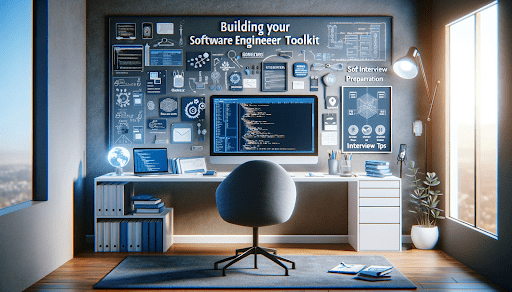Check a candidate’s skills, strategy, and attitude with a talent assessment test. This test helps you see how well they work before you hire them. It’s a fair and unbiased way to evaluate candidates. If you’re struggling to choose among skilled candidates, the test can help you find the best fit for your company.
People may seem great on paper, but their actual work style could be different. Whether they’re promising polished content or talking big about coding, the test ensures they can back up their claims. Using talent assessment tests in your hiring process increases the chances of finding the perfect fit for any role and helps you see who will work well with your existing team.
In the age of AI, talent assessment is also evolving. AI-based talent assessment tests use advanced technology to identify and evaluate potential talent in new and innovative ways.
Defining AI-Based Talent Assessment Tests
AI-based talent assessment tests are sophisticated platforms that use machine learning and AI algorithms to evaluate an individual’s skills, capabilities, and suitability for a specific role or task. These tools analyze an array of factors that often go unnoticed in traditional assessment methods, providing more comprehensive and objective results.

The transformational potential of these AI-based assessment tools can’t be overstated. Let’s delve into the three key research findings that highlight their transformative role in talent assessment:
- Enhanced Efficiency and Accuracy
- Minimizing Bias in Talent Assessment
- Predictive Analytics in Talent Acquisition
Enhanced Efficiency and Accuracy
Traditional talent assessment tests are time-consuming and subject to human error. With the introduction of AI in talent assessment, these challenges are being mitigated. AI-based assessment tools are capable of evaluating numerous candidates simultaneously, processing large amounts of data within a short timeframe, and yielding highly accurate results.
These tools assess various aspects of a candidate’s profile, including cognitive abilities, behavioral traits, and technical skills, through diverse testing methods like psychometric tests, coding tests, and job simulations. In doing so, they reduce administrative burdens, streamline the talent assessment process, and ensure a higher degree of accuracy.
Minimizing Bias in Talent Assessment
One significant challenge in talent assessment is the inherent bias that humans can bring into the process. Be it conscious or unconscious, these biases affect the objectivity of the assessment, leading to otential unfairness in the hiring process.
AI-based talent assessment tools provide an effective solution to this problem. By using algorithms and machine learning, these tools analyze candidate data without prejudice, resulting in a more fair and balanced evaluation. They focus on the candidate’s capabilities and qualifications rather than extraneous factors, hence making the hiring process more equitable and transparent.
Predictive Analytics in Talent Acquisition
AI-based assessment tools not only enhance efficiency and reduce bias, but they also have the unique capability of predicting a candidate’s future performance. By leveraging vast amounts of data and machine learning algorithms, they can identify patterns and make predictions about a candidate’s suitability for a role, their potential for growth, and how well they’d fit within the company culture.
This predictive capability is transformative. It allows organizations to make more informed hiring decisions and build more productive teams. This represents a significant leap forward in talent acquisition, shifting the focus from a candidate’s past performance to their future potential.
Future Developments in AI-Based Talent Assessment
As AI continues to advance, we can anticipate more developments in AI-based talent assessment tests. We expect to see even more personalized assessments, where AI tools adapt their evaluation based on an individual’s responses, providing a more nuanced understanding of a candidate’s capabilities.

Moreover, the integration of other emerging technologies like natural language processing and computer vision will allow these tools to analyze verbal and non-verbal cues, offering a more comprehensive assessment.
Furthermore, as the ethical implications of AI become more pronounced, there will be a growing emphasis on ensuring that AI-based talent assessment tools are transparent and accountable. It will be crucial for these tools to provide clear explanations for their evaluations and decisions, allowing individuals to understand and, if necessary, contest the results.
Which three components are essential for conducting a talent assessment?
Three essential components for conducting a talent assessment are:
- Identification of relevant skills and attributes: This involves determining the specific skills, qualities, and competencies required for a particular role or task.
- Evaluation methods and tools: Selecting appropriate assessment methods and tools to measure the identified skills and attributes effectively. This may include interviews, tests, simulations, or performance evaluations.
- Data analysis and interpretation: Analyzing the gathered data and interpreting the results to gain valuable insights into an individual’s strengths, weaknesses, and overall potential for the given role or task.
Read more about :
Recruiting Strategies for Hiring Exceptional Frontend Developers in 2023
Technical Skills Assessment Tips for Employers
Mitigating Bias in the Hiring Process through Skills Assessments
Conclusion
The technical assessment test is revolutionizing talent evaluation for organizations. These tests leverage AI to improve efficiency, accuracy, and predictive capabilities while reducing biases. Despite some existing challenges, the future looks promising as AI technology continues to evolve. Moving ahead, the primary goal will be to enhance the reliability, transparency, and fairness of these tools for all users. We are excited about the potential impact of AI on talent assessment and look forward to exploring its transformative effects in the future.



